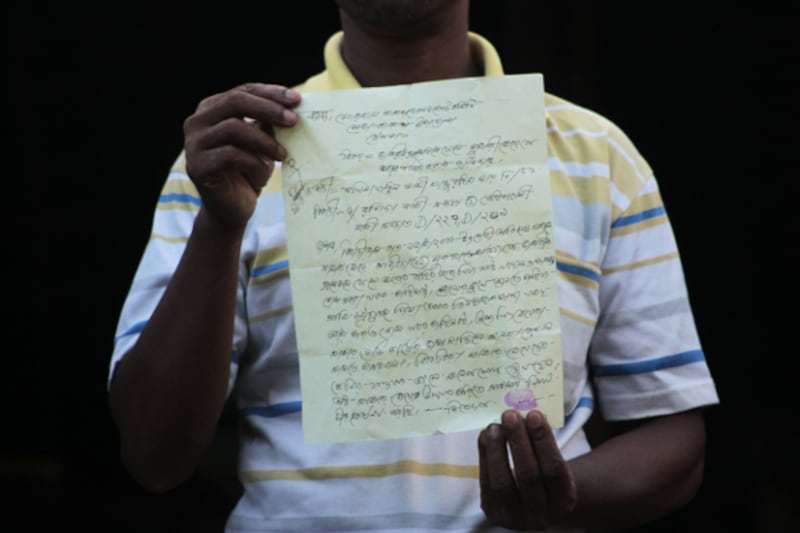In the crowded refugee camps of southeastern Bangladesh, Rohingya girls sometimes disappear – and, in certain cases, into the homes of local people.
Jamila Khatun – who came to Bangladesh from Myanmar in 2012 with her husband and six daughters – said she had allowed two of her girls to be taken into the home of a local official in Bandarban district, then lost track of them for five years.
“The municipal official took my daughters to Dhaka by making a lucrative job offer,” she said. The girls were 13 and 9 at the time.
“After taking them there, the official told them that if they did not agree to stay, their parents would be tortured,” Jamila told BenarNews. She claimed she and her husband were also threatened.
The family was reunited earlier this year with help from the International Organization for Migration (IMO) and officials in the Leda refugee camp in Teknaf, a sub-district of Cox’s Bazar, where they now live.
Abdul Motaleb, chairman of the Leda camp development committee, told BenarNews that he had received a letter late last month from a woman whose two girls, ages 11 and 12, were missing.
“I am praying to you for the rescue of my daughters,” Sakhina Khatun wrote to the chairman.
Sakhina’s letter said two Rohingya women took the girls to Chittagong after offering them jobs. She went there but could not retrieve her daughters.
Jahangir Kabir Chowdhury, chairman of Rajapalong Union Council, a local governing body, said financially secure people in Chittagong hired poor Rohingya women and girls.
“Some families have more than one Rohingya domestic worker,” he said.
An official of an international agency working with Rohingya who asked not to be identified told BenarNews that “women and children are being trafficked to exploit them for sexual servitude and domestic work.”

Concerns downplayed
More than 700,000 Rohingya escaped to Cox’s Bazar and nearby areas in neighboring Bangladesh after a crackdown began on Aug. 25, 2017, in Myanmar’s Rakhine state. They joined more than 200,000 who had fled previous persecution and cycles of violence in Myanmar.
In July, an IOM statement said the U.N. agency had identified and was assisting 78 trafficking victims in Cox’s Bazar district over the previous 10 months, and warned that many more people were at risk.
“The horrific prospect that thousands of people affected by the Rohingya crisis will end up in the hands of traffickers is a risk that must not be underestimated,” said Manuel Marques Pereira, IOM’s Emergency Coordinator in Cox’s Bazar.
Two refugee camp leaders – Mohammad Foyezu Arakani of Kutupalong camp and Deen Mohammad of the Tulabagan camp – told BenarNews that four to five women and children had gone missing from each camp over the last two months.
Rohingya refugees are restricted from leaving the camps and have no legal means of earning a livelihood, adding complexity to the question of who is missing and why.
About 58,000 Rohingya were arrested and returned to the camps over the last year, according to Bangladesh’s Refugee Relief and Repatriation Commissioner.
Local officials, meanwhile, downplayed concerns about human trafficking of Rohingya.
“The number of potential cases of trafficking has come down,” A.K.M. Iqbal Hossain, the police superintendent in Cox’s Bazar, told BenarNews, adding, “Sometimes we get one or two potential trafficking cases.”
Hossain said the Bangladesh border guard and army had set up 13 security checkpoints at different strategic points in Ukhia and Teknaf sub-districts to stop human trafficking.
A Red Cross official concurred.
“There are some cases of missing of women and children. But the number of such cases is not very high,” Imam Jafar Shikder, an International Red Cross official in Ukhia told BenarNews.
